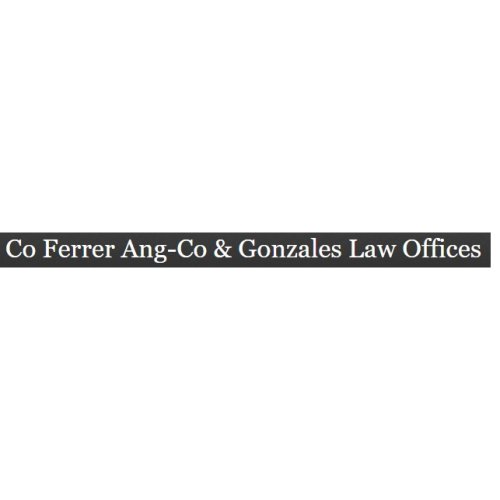Best Merger & Acquisition Lawyers in San Juan
Share your needs with us, get contacted by law firms.
Free. Takes 2 min.
List of the best lawyers in San Juan, Philippines
About Merger & Acquisition Law in San Juan, Philippines
Merger & Acquisition (M&A) law in San Juan, Philippines, is a specialized field that deals with the consolidation of companies or assets. This process can be characterized as either a merger, where two companies combine to form a new entity, or an acquisition, where one entity takes over another. The legal framework surrounding M&A in San Juan is influenced by both national legislation and local regulations, ensuring that corporate transactions are conducted in a fair and transparent manner. Due to the complex nature of these transactions, understanding the legal implications is crucial for both involved parties.
Why You May Need a Lawyer
There are several situations in M&A where legal expertise becomes indispensable. You may need a lawyer to conduct thorough due diligence, ensuring that all legal aspects of a transaction are scrutinized. Legal assistance is crucial in negotiating terms and drafting agreements to protect your interests. Additionally, a lawyer can help navigate regulatory compliance, ensuring that the transaction adheres to all relevant laws and regulations. In cases where disputes arise, legal representation is vital to mediate and resolve conflicts effectively.
Local Laws Overview
The legal landscape for M&A in San Juan is largely shaped by the Philippine Corporation Code and the Securities Regulation Code. Key considerations include the need for board and shareholder approval, reporting and disclosure requirements, and compliance with antitrust laws to prevent anti-competitive practices. Moreover, the Revised Corporation Code of the Philippines modernized and simplified many processes, which facilitates smoother transactions. Understanding the local taxation implications and labor regulations is also important in M&A activities.
Frequently Asked Questions
What is the difference between a merger and an acquisition?
A merger involves the combination of two companies to form a new entity, while an acquisition occurs when one company purchases and absorbs another.
How are M&A transactions typically structured in the Philippines?
Typical structures include asset purchases, stock purchases, and mergers. The choice depends on factors such as tax implications, liabilities, and strategic goals.
What approvals are necessary for M&A transactions in San Juan?
Approvals may be needed from the company's board of directors, shareholders, and regulatory bodies like the Securities and Exchange Commission (SEC) and the Philippine Competition Commission (PCC).
What are common challenges faced during M&A in San Juan?
Challenges include cultural integration, aligning business objectives, regulatory compliance, valuation discrepancies, and managing stakeholder expectations.
How do due diligence processes work in M&A?
Due diligence involves a thorough investigation of the target company's financial, legal, and operational status to uncover potential risks and liabilities.
Are there sector-specific regulations affecting M&A in San Juan?
Yes, certain sectors may have additional regulations, such as banking, insurance, and telecommunications, which require specific compliance measures.
What role do antitrust laws play in M&A?
Antitrust laws ensure transactions do not create or reinforce monopolistic practices that could harm market competition and consumer welfare.
How are employee rights affected in an M&A transaction?
Employee rights, including labor contracts and benefits, must be honored, and any changes typically require negotiation and mutual agreement.
What are the taxation implications of M&A transactions?
Tax implications vary based on the transaction structure, and can include capital gains tax, value-added tax (VAT), and other transfer taxes.
How can disputes in M&A transactions be resolved?
Disputes can be resolved through negotiation, mediation, arbitration, or litigation, depending on the circumstances and contractual agreements.
Additional Resources
For further assistance and information, you may consider reaching out to the following organizations:
1. Securities and Exchange Commission (SEC): Oversees corporate governance and ensures compliance with securities laws.
2. Philippine Competition Commission (PCC): Ensures transactions do not infringe antitrust laws.
3. Department of Trade and Industry (DTI): Offers guidance on business regulations and trade promotions.
4. Local Chambers of Commerce: Provides a network for businesses involved in M&A activities.
Next Steps
If you require legal assistance in M&A, consider consulting with a specialized M&A attorney who can provide tailored advice based on your situation. Begin by gathering all relevant documents and information about your intended transaction. Schedule a consultation to discuss your objectives, timelines, and potential challenges. Your lawyer will guide you through the legal processes, ensuring compliance and safeguarding your interests throughout the transaction.
Lawzana helps you find the best lawyers and law firms in San Juan through a curated and pre-screened list of qualified legal professionals. Our platform offers rankings and detailed profiles of attorneys and law firms, allowing you to compare based on practice areas, including Merger & Acquisition, experience, and client feedback.
Each profile includes a description of the firm's areas of practice, client reviews, team members and partners, year of establishment, spoken languages, office locations, contact information, social media presence, and any published articles or resources. Most firms on our platform speak English and are experienced in both local and international legal matters.
Get a quote from top-rated law firms in San Juan, Philippines — quickly, securely, and without unnecessary hassle.
Disclaimer:
The information provided on this page is for general informational purposes only and does not constitute legal advice. While we strive to ensure the accuracy and relevance of the content, legal information may change over time, and interpretations of the law can vary. You should always consult with a qualified legal professional for advice specific to your situation.
We disclaim all liability for actions taken or not taken based on the content of this page. If you believe any information is incorrect or outdated, please contact us, and we will review and update it where appropriate.








